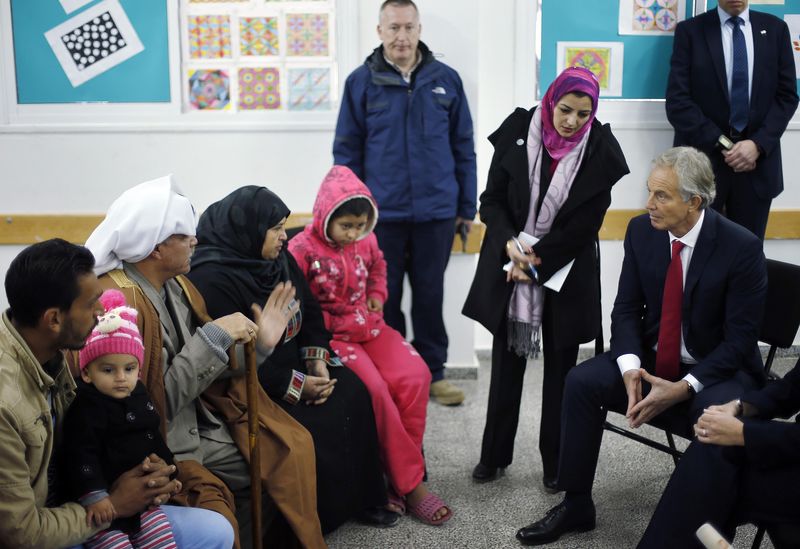By Nidal al-Mughrabi
GAZA (Reuters) - Any Israeli-Palestinian peace deal must lead to improved living conditions for Palestinians to prevent violence between the two from erupting again, Middle East peace envoy Tony Blair said on Sunday.
"The last conflict left Gaza devastated and its people more downtrodden and impoverished," Blair said in Gaza, the site of the July-August war between the territory's Islamist militants and Israel.
"I am extremely concerned that, if we leave Gaza in the state it is in, you have another eruption in violence and then we are back into a further catastrophe," Blair added.
He said a successful peace drive required "a broad and a profound improvement in the daily life of Palestinians ... unified Palestinian politics ... (and) an enhanced role for the region in alliance with the international community."
Blair said Hamas, the Palestinian faction that runs Gaza, had to declare whether it wanted a peace deal with Israel. The group calls for the destruction of Israel and has rejected any peace accords with Israel signed by the western-backed Palestinian Authority led by President Mahmoud Abbas.
"The international community needs clarity from Hamas. Are they a Palestinian nationalist movement dedicated to the achievement of a Palestinian state ... are they prepared to accept the Palestinian state within the 1967 borders or not?"
Some Hamas leaders have said they would accept a Palestinian state on land Israel occupied in a 1967 war in return for a long-term truce. But they would continue to refuse to recognise Israel's right to exist.
Blair, envoy of the United Nations, the European Union, Russia and the United States -- the so-called Quartet -- said that only with a unified Palestinian political stance could the international community "promote reconciliation alongside reconstruction."
Little of the $5.4 billion (4 billion pounds) pledged for Gaza's reconstruction at a Cairo conference of international donors last October has reached the territory, and thousands of Palestinians have been sheltering in tents near destroyed homes.
Thousands more have been living in damaged buildings, using plastic sheeting to keep out rain. Some 20,000 displaced persons are still being housed in U.N.-run schools.
The Palestinian Authority was meant to oversee rebuilding because Israel and the West fear Hamas would use the materials to build tunnels and fortifications.
Blair added that private enterprise was a vital part of improving the daily lives of Palestinians in Gaza.

"Once there was a thriving private sector here and it has to be a thriving private sector again ... We need a radical change of approach from Israel ... that Gaza and its economy requires," Blair, a former British prime minister, said.